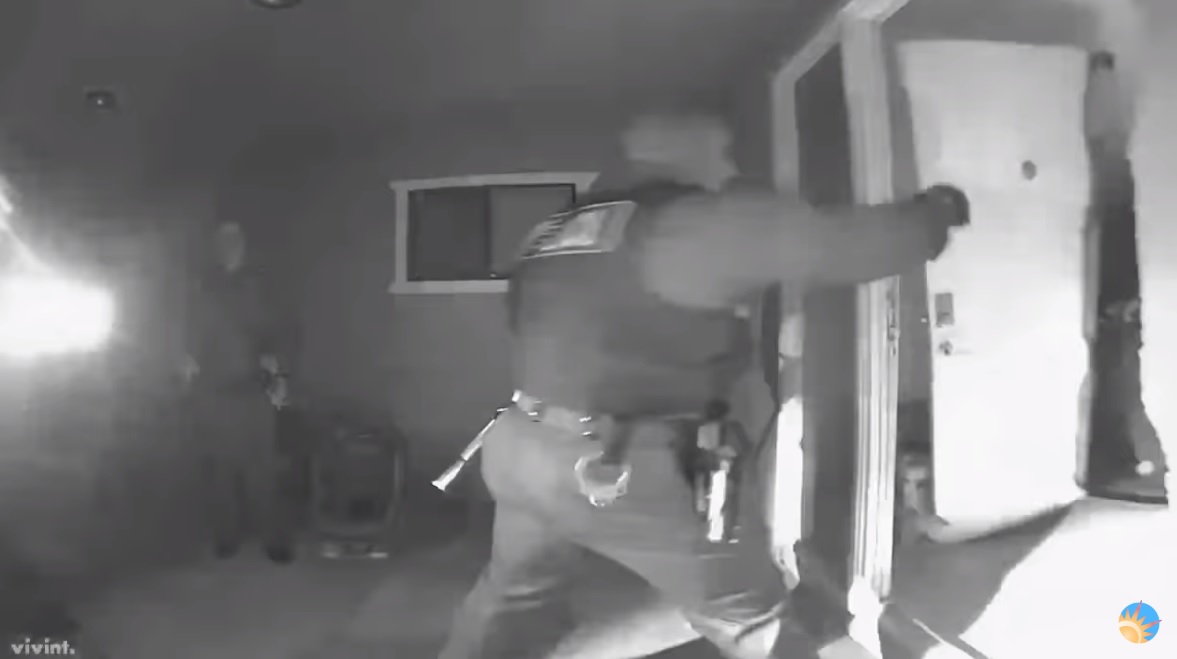Supreme Court mulls constitutionality of warrantless home invasions
03/21/2021 / By Ethan Huff

On March 24, the United States Supreme Court will hear arguments in Caniglia v. Strom, a case that could have far-reaching effects on the way law enforcement conducts “community caretaking.”
Should the Supreme Court side with the lower courts, police throughout America will be given the green light to conduct warrantless raids on people’s homes in the name of protecting residents against something deemed to be an immediate danger to their life.
The case came about after a Rhode Island household was searched without a warrant following a call to police. The wife, feeling threatened by the husband who put an unloaded handgun on the kitchen table and told her to “shoot me now and finish this” during an argument, petitioned law enforcement to intervene, upon which they recommended that the husband go to the hospital by ambulance for a crisis evaluation.
The wife told police that her husband kept two guns in the home, prompting them to conduct a warrantless search. The wife’s consent, however, was later invalidated when it was discovered that officers had lied to her about her husband consenting to seizure of the firearms.
Officers later told the wife that her husband could retrieve the two firearms at the police station. When he arrived to pick them up, though, the department told him that official policy was to not return weapons to their owners without a court order.
The situation escalated from there with the American Civil Liberties Union (ACLU) intervening on behalf of the couple by challenging the warrantless search and seizure protocol that led to the firearms being confiscated in the first place.
ACLU stands with Constitution as law enforcement tries to chip away at it
While the “community caretaking” provision of police intervention does apply to vehicles, this case represents the first time that its application to a private home has been both attempted and challenged.
Siding with police, the Federal Court of Appeals says the doctrine of community protection was designed to give police “the flexibility to take appropriate action when unforeseen circumstances present a transient risk that requires immediate attention.”
“Understanding the main objective of the doctrine leads inexorably to the conclusion that it should not be limited to the context of the motor vehicle. Threats to individual and community safety are not limited to highways,” the court further argues.
This is not acceptable to the husband-wife duo, however, which hired on a law firm to challenge the case, taking it all the way up to the Supreme Court, which agreed to hear it on the grounds that it will decide whether or not the “community caretaking” exception applies to private households.
The ACLU of Rhode Island filed a “friend of the court” brief in the U.S. Supreme Court arguing that warrantless searches of homes does not apply under the “community caretaking” exception because they raise “significant issues concerning the scope of Fourth Amendment protections and police warrantless searches of the home.”
Allowing police to invade people’s homes without a warrant, the ACLU says, gives them too much undue authority. It also violates the U.S. Constitution, which forbids such a practice under any circumstances, giving police “free rein to enter the home without probable cause or a warrant, whenever they think it is ‘reasonable’ to do so.”
One can see how easily and quickly such an allowance would be abused, hence why it is critical to nip this one in the bud. Hopefully the Supreme Court agrees that giving law enforcement free rein to invade people’s homes without a warrant would set a disastrous precedent that would only amplify an already out-of-control, militarized police state.
More related news about law enforcement’s constant encroachment on the Constitution can be found at Tyranny.news.
Sources for this article include:
Submit a correction >>
Tagged Under:
ACLU, American Civil Liberties Union, Caniglia v. Strom, community caretaking, constitution, exigent circumstance, firearms, Fourth Amendment, freedom, guns, Home invasion, law enforcement, liberty, police, police state, probable cause, raid, reasonable suspicion, scotus, search warrant, Second Amendment, Supreme Court, warrantless
This article may contain statements that reflect the opinion of the author
RECENT NEWS & ARTICLES
COPYRIGHT © 2018 ENSLAVED.NEWS
All content posted on this site is protected under Free Speech. Enslaved.news is not responsible for content written by contributing authors. The information on this site is provided for educational and entertainment purposes only. It is not intended as a substitute for professional advice of any kind. Enslaved.news assumes no responsibility for the use or misuse of this material. All trademarks, registered trademarks and service marks mentioned on this site are the property of their respective owners.




















